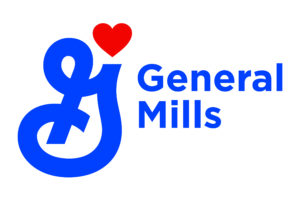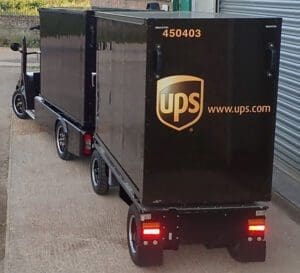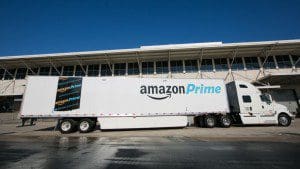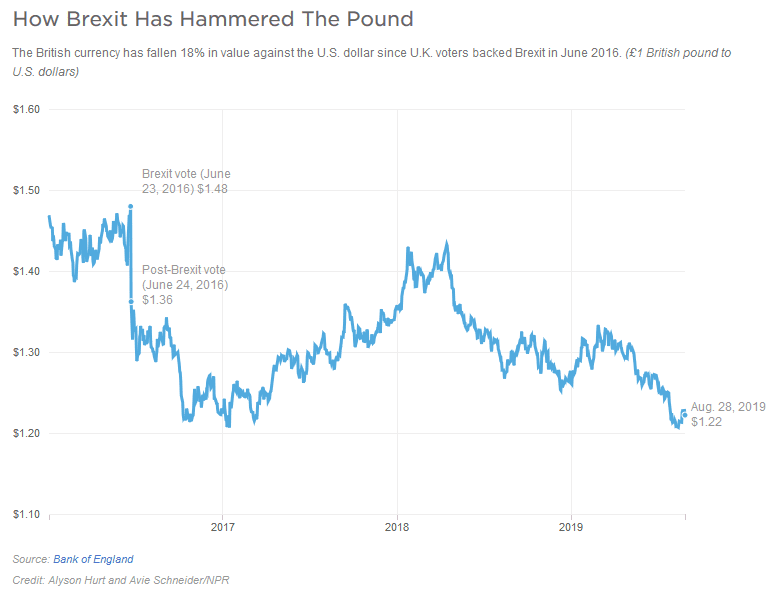 As my colleague Clint Reiser pointed out in last week’s news round-up, baseball is back. And while the season will look a lot different than in years past, it is back. At least until it isn’t. Unlike the NHL and NBA which chose to use bubble cities to contain the teams, baseball teams are still traveling for games. And while the league is somewhat limiting travel by only having teams play in their geographic division, this still means a lot of travel for players. And within the first week of the season, we had our first COVID-19 outbreak. The Miami Marlins have had 19 players test positive for the virus and their season is on hold. This has resulted in a number of other canceled games, with players wondering how this will all play out. Meanwhile, the other major sports league in the US, the NFL, has not chosen to operate in a bubble city either and training camps kicked off this week. This has resulted in players across the league opting out of the season due to coronavirus concerns. Obviously, we have no way of knowing how the bubble locations will work out for the NBA and NHL, but it will be interesting to see if it makes an impact on whether a season can finish. I’m not holding out much hope for baseball or football, or really sports in general this year. And now on to this week’s logistics news.
As my colleague Clint Reiser pointed out in last week’s news round-up, baseball is back. And while the season will look a lot different than in years past, it is back. At least until it isn’t. Unlike the NHL and NBA which chose to use bubble cities to contain the teams, baseball teams are still traveling for games. And while the league is somewhat limiting travel by only having teams play in their geographic division, this still means a lot of travel for players. And within the first week of the season, we had our first COVID-19 outbreak. The Miami Marlins have had 19 players test positive for the virus and their season is on hold. This has resulted in a number of other canceled games, with players wondering how this will all play out. Meanwhile, the other major sports league in the US, the NFL, has not chosen to operate in a bubble city either and training camps kicked off this week. This has resulted in players across the league opting out of the season due to coronavirus concerns. Obviously, we have no way of knowing how the bubble locations will work out for the NBA and NHL, but it will be interesting to see if it makes an impact on whether a season can finish. I’m not holding out much hope for baseball or football, or really sports in general this year. And now on to this week’s logistics news.
- USPS stays afloat with $10 billion loan
- Ford says Mexican rail blockade near US border hits operations
- Wooden pallet is Brexit stumbling block
- General Mills looking for more manufacturing partners, suppliers to meet demand
- The US has more COVID-19 testing than most
- Dublin pilots van-free city center deliveries with UPS
- Amazon takes on the UK’s biggest supermarkets with free food delivery
- FreshDirect to launch micro-fulfillment-powered delivery in DC-area
 The US Postal Service has faced an uphill battle as it continues to lose money. Now, the USPS has reached an agreement in principle to receive a $10 billion loan from the US Department of the Treasury under the CARES act, which the agency projects will keep it solvent at least until May 2021. The USPS said its board of governors unanimously approved the loan agreement Tuesday, which will be finalized in the coming weeks. In an effort to retain regular shippers the agency has rolled out its first loyalty program. Under the program, business customers can earn $40 in credits for every $500 spent on Priority Mail and Priority Mail Express postage through its Click-N-Ship program. They can apply the credits to subsequent purchases of those products at checkout. Credits expire one year from the date of issuance.
The US Postal Service has faced an uphill battle as it continues to lose money. Now, the USPS has reached an agreement in principle to receive a $10 billion loan from the US Department of the Treasury under the CARES act, which the agency projects will keep it solvent at least until May 2021. The USPS said its board of governors unanimously approved the loan agreement Tuesday, which will be finalized in the coming weeks. In an effort to retain regular shippers the agency has rolled out its first loyalty program. Under the program, business customers can earn $40 in credits for every $500 spent on Priority Mail and Priority Mail Express postage through its Click-N-Ship program. They can apply the credits to subsequent purchases of those products at checkout. Credits expire one year from the date of issuance.
 Members of the local Yaqui indigenous community who are demonstrating for better land rights, have blocked railways used to move auto parts, as well as grains and steel, from Sonora to the United States. As a result, Ford’s Mexico unit has said that operations at its Hermosillo plant in the same state have been affected. Additionally, Ford said that the blockades is hitting imports and exports to and from the US. The blockade has hit both the Mexicali-California and the Nogales-Arizona border crossings, and so far has prevented the passage of 15 trains carrying about 150,000 tons of cargo, according to the Mexican railways association AMF. AMF President Jose Zozaya said the association has been in talks with the government and protesters, and that he is confident the situation will be resolved soon.
Members of the local Yaqui indigenous community who are demonstrating for better land rights, have blocked railways used to move auto parts, as well as grains and steel, from Sonora to the United States. As a result, Ford’s Mexico unit has said that operations at its Hermosillo plant in the same state have been affected. Additionally, Ford said that the blockades is hitting imports and exports to and from the US. The blockade has hit both the Mexicali-California and the Nogales-Arizona border crossings, and so far has prevented the passage of 15 trains carrying about 150,000 tons of cargo, according to the Mexican railways association AMF. AMF President Jose Zozaya said the association has been in talks with the government and protesters, and that he is confident the situation will be resolved soon.
 Post-Brexit trade plans for the UK and European Union have hit all sorts of snags. Now, there is another hurdle that will need to be navigated: pallets. Pallets have been the unsung hero of global trade for nearly a century, but new regulations are threatening a pallet shortage. Starting January 1, 2021, wooden pallets moving goods between the UK and EU will need to comply with ISPM-15, an international rule that requires them to be baked to 56 degrees Celsius for at least 30 minutes to prevent the spread of pests and diseases. The head of the UK’s Timber Packaging and Pallet Confederation has warned that Britain won’t have enough that comply with the rule, and that the coronavirus pandemic has impacted its efforts to plug the shortfall. This will be a serious obstacle to overcome considering that as many as 100 million pallets move between the UK and EU each year.
Post-Brexit trade plans for the UK and European Union have hit all sorts of snags. Now, there is another hurdle that will need to be navigated: pallets. Pallets have been the unsung hero of global trade for nearly a century, but new regulations are threatening a pallet shortage. Starting January 1, 2021, wooden pallets moving goods between the UK and EU will need to comply with ISPM-15, an international rule that requires them to be baked to 56 degrees Celsius for at least 30 minutes to prevent the spread of pests and diseases. The head of the UK’s Timber Packaging and Pallet Confederation has warned that Britain won’t have enough that comply with the rule, and that the coronavirus pandemic has impacted its efforts to plug the shortfall. This will be a serious obstacle to overcome considering that as many as 100 million pallets move between the UK and EU each year.
 One result of the coronavirus pandemic has been a surge in consumer purchases of items such as baking mixes and soups. While this has been beneficial to manufacturers of these items, it has also caused a lot of stress on their supply chains. General Mills now plans to boost the number of outsourcing manufacturing partners and suppliers by as much as 20 percent from pre-pandemic levels. The company has 24 manufacturing plants in the US and generally uses third party manufacturers to produce about 30 percent of its products. General Mills’ factories are running at full capacity but are not equipped to handle the surge; the company said US meals and baking sales rose 75 percent, while cereal sales rose 26 percent. While bringing on new partners will help capacity restraints, it is not a simple process. The company has said that it takes about six to eight weeks to vet a new manufacturing partner.
One result of the coronavirus pandemic has been a surge in consumer purchases of items such as baking mixes and soups. While this has been beneficial to manufacturers of these items, it has also caused a lot of stress on their supply chains. General Mills now plans to boost the number of outsourcing manufacturing partners and suppliers by as much as 20 percent from pre-pandemic levels. The company has 24 manufacturing plants in the US and generally uses third party manufacturers to produce about 30 percent of its products. General Mills’ factories are running at full capacity but are not equipped to handle the surge; the company said US meals and baking sales rose 75 percent, while cereal sales rose 26 percent. While bringing on new partners will help capacity restraints, it is not a simple process. The company has said that it takes about six to eight weeks to vet a new manufacturing partner.
The US possibly has the most COVID-19 testing capacity in the world but is falling short in getting results quickly. The main issue here is a supply chain bottleneck when it comes to testing facilities and labs getting their hands on the appropriate chemical kits and tools. There are a few companies that dominate the market and their machines run on chemical kits and disposable plastic parts that only they sell. The result is that with so many requests coming in for their equipment, they do not have the capacity to handle all the requests. US labs now run about 800,000 diagnostic tests daily, according to the COVID Tracking Project. But the United States needs 6-10 million tests per day, by various estimates.
 More and more cities and countries around the world are looking at ways to reduce carbon emissions in congested city centers. Dublin is the latest to look at ways to combat air pollution and congestion. The city is piloting mini urban distribution centers and powered walkers and quad cycles to enable city center deliveries that don’t contribute to local emissions or congestion. The pilot is funded by Dublin City Council, Enterprise Ireland, and Belfast City Council. The system was developed as part of a Small Business Innovation Research (SBIR) challenge, which sought new approaches to optimizing deliveries. Through this, design and manufacturing consultancy Fernhay developed the containers, bikes, and walkers for global logistics carrier UPS to trial. The vehicles will enable workers to deliver goods such as groceries, medicine and parcels.
More and more cities and countries around the world are looking at ways to reduce carbon emissions in congested city centers. Dublin is the latest to look at ways to combat air pollution and congestion. The city is piloting mini urban distribution centers and powered walkers and quad cycles to enable city center deliveries that don’t contribute to local emissions or congestion. The pilot is funded by Dublin City Council, Enterprise Ireland, and Belfast City Council. The system was developed as part of a Small Business Innovation Research (SBIR) challenge, which sought new approaches to optimizing deliveries. Through this, design and manufacturing consultancy Fernhay developed the containers, bikes, and walkers for global logistics carrier UPS to trial. The vehicles will enable workers to deliver goods such as groceries, medicine and parcels.
 The coronavirus lockdown has seen a spike in online grocery shopping worldwide. In the UK, stores such as Tesco, Sainsbury’s, and Ocado have seen incredible growth. As a result, Amazon is now offering free grocery deliveries to Prime members in London and the surrounding area to compete with traditional grocers. Amazon Fresh, the company’s grocery delivery service, will offer same-day delivery in most areas on orders over £40 ($51.51) placed before 9 p.m. The minimum order value has also been lowered to £15 ($19.32). Prime members in Greater London and parts of the southeast of England can get free delivery in two-hour windows on all orders over £40 ($51.51), or pay £3.99 ($5) for delivery in a one-hour slot.
The coronavirus lockdown has seen a spike in online grocery shopping worldwide. In the UK, stores such as Tesco, Sainsbury’s, and Ocado have seen incredible growth. As a result, Amazon is now offering free grocery deliveries to Prime members in London and the surrounding area to compete with traditional grocers. Amazon Fresh, the company’s grocery delivery service, will offer same-day delivery in most areas on orders over £40 ($51.51) placed before 9 p.m. The minimum order value has also been lowered to £15 ($19.32). Prime members in Greater London and parts of the southeast of England can get free delivery in two-hour windows on all orders over £40 ($51.51), or pay £3.99 ($5) for delivery in a one-hour slot.
Online grocer FreshDirect is making a move from its traditional next-day delivery model to launch same-day delivery. The company is partnering with technology firm Fabric to open a micro-fulfillment center at one of the grocer’s Washington, D.C.-area distribution facilities later this year. FreshDirect relaunched same-day delivery in New York City last month, rebranding it as FreshDirect Express. The Washington, D.C. on-demand service will be the first time the grocer will be using a micro-fulfillment center.
That’s all for this week. Enjoy the weekend and the song of the week, Paul Simon’s The Boy in the Bubble.





















